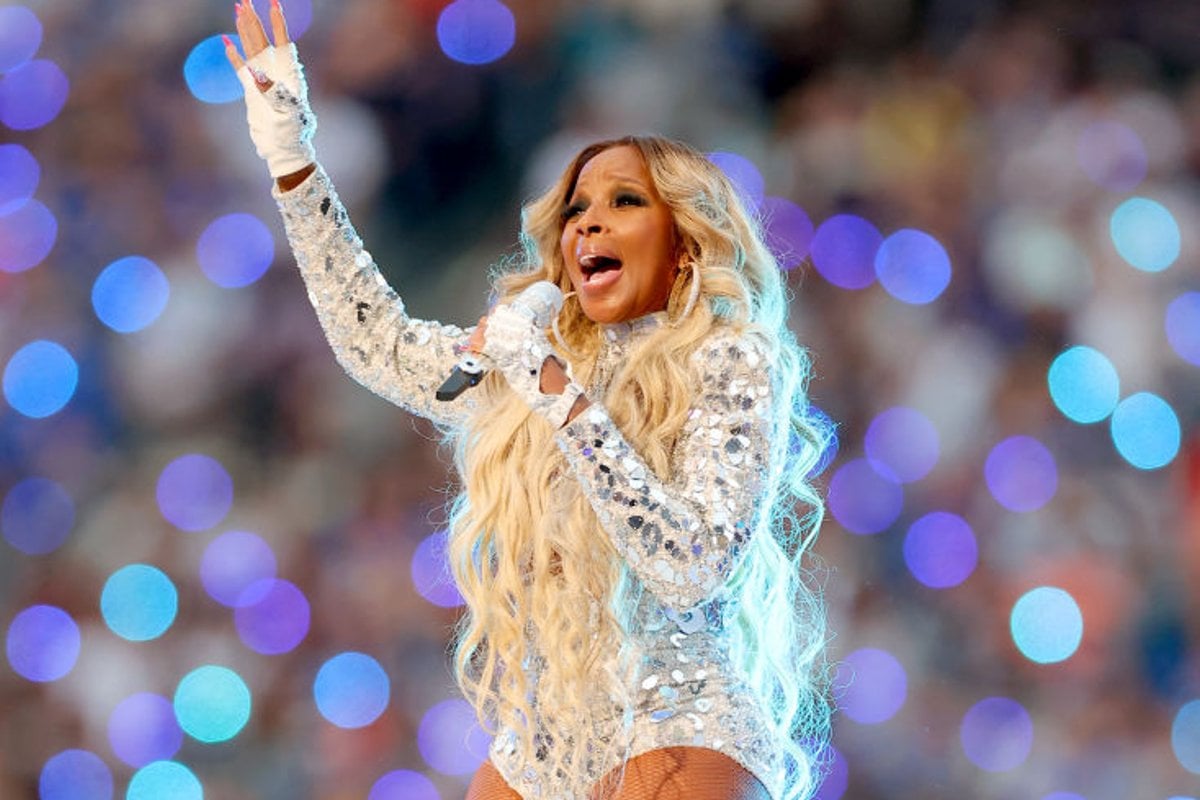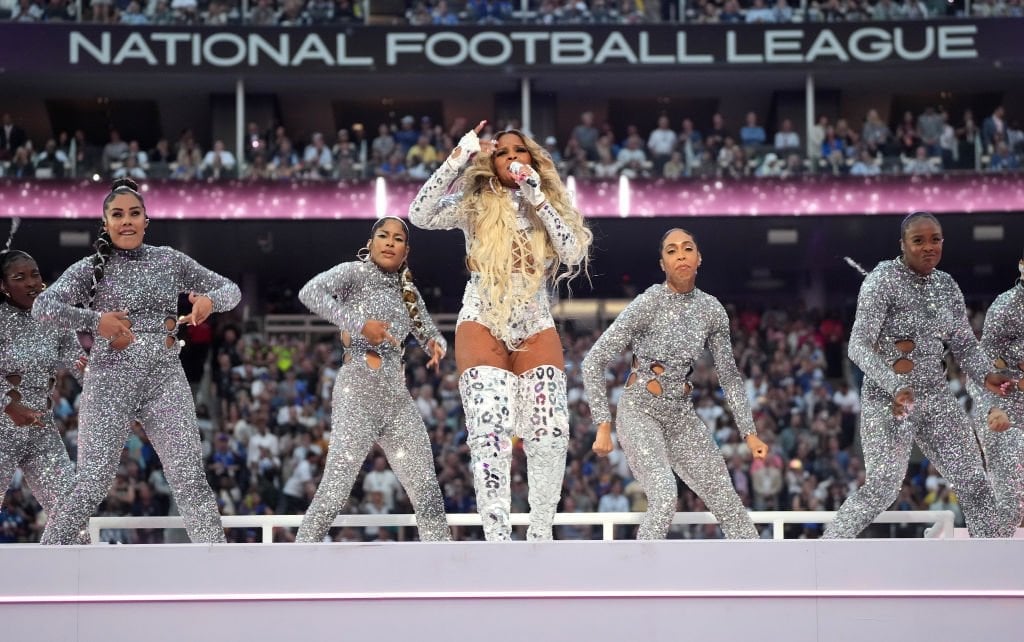
This post deals with substance abuse, sexual assault, and depression, and could be triggering for some readers.
Everybody bow down - the Queen of Hip-Hop Soul, Mary J. Blige, is reigning supreme once again. Together with fellow musicians (and legends) Dr. Dre, Snoop Dogg, Kendrick Lamar, and Eminem, Blige brought the house down at Sunday's Super Bowl halftime show. It was the first time hip-hop artists headlined the popular event, which is watched by hundreds of millions of people around the world.
So it's hardly surprising that Blige is wearing a glittering smile, in addition to a glittering wardrobe, on stage. But behind that smile lies a lifetime of pain - and a core of strength.
"Everybody did what they had to do to survive."
Born in the Bronx in New York City on January 11 1971, Blige (the second of four children) spent much of her formative years in public housing. She was primarily raised by her single mother after her father, a Vietnam war veteran and jazz musician, left the family when she was just four years old. Blige's father was often abusive towards her mother, who suffered from alcoholism.
"What made it hard was the environment. It was a lot of people hurting — trying to survive and the environment was just terrible," Blige told People magazine. "That's all I can say. Everybody did what they had to do to survive."
In her 2021 documentary My Life, which detailed the hardship Blige went through, she opened up even further. "I think what people don’t understand about the families that live in the projects, is that it’s like a prison," she said. "People are just suffering... I remember hearing women being beaten. My mother was one of those women. I carried her pain. I carried the neighbours’ pain. I carried people all over the environment’s pain. And I carried my own pain."

